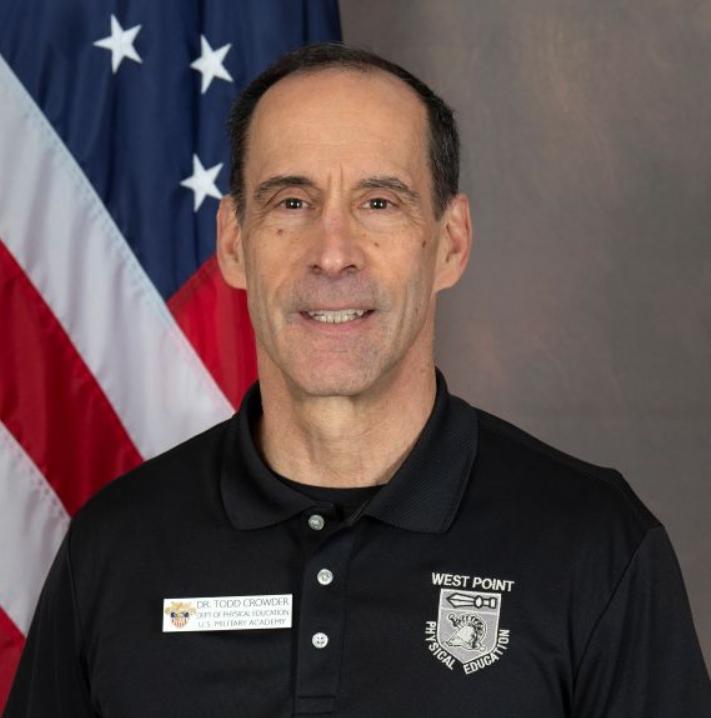
Dr. Todd A. Crowder, Ph.D.
Director of DPE Research
Department of Physical Education
Dr. Todd Crowder is director of research for the Department of Physical Education (DPE) at the United States Military Academy (USMA) in West Point, New York. He is also the course director for the hybrid Aerobic Fitness course, is working on various DPE/USMA and Army research projects and has been a coach with the Black and Gold Sandhurst team since 2017.
After residing in eight different states, he has found a home in the beautiful Hudson Valley. He is the proud father of two grown daughters who reside in New York City and the Hudson Valley. He graduated from Fort Hays State University in Hays, Kansas. During schooling and following graduation, he worked at Hadley Regional Medical Center as a wellness coordinator, physical therapy assistant and Phase III-IV cardiac rehab assistant.
Dr. Crowder completed his master’s degree as a graduate/teaching assistant in exercise science from Fort Hays State University. He relocated to Columbia, Missouri, where he was a graduate assistant in the human performance lab and teaching assistant at the University of Missouri and a volunteer assistant coach with the Missouri women’s track and field team.
Prior to graduation, Dr. Crowder was an exercise physiologist at Columbia’s 3-M Branch plant, Cincinnati’s Proctor and Gamble headquarters and Cincinnati’s Midland Company. After graduation from the University of Missouri in human performance with support areas in statistics and nutrition, Dr. Crowder was an exercise physiologist in the ramp-up of a resort fitness program at Amelia Island Resort Center in Florida.
Dr. Crowder was selected as the director of the Sports Medicine division of the DPE at USMA in January 1990, where he served until 1994. He was director of Optimal Performance from 1998-99 and the director of DPE’s Center of Physical Development Excellence from 1999-2005. Additionally, he was a volunteer coach with the Army men’s middle distance track program from 2003-11. He has served various times as the course director for DPE’s Fundamentals of Physical Fitness course and as an officer representative with both Army football and the track and field teams.
Ph.D. - University of Missouri
M.S. - Fort Hays State University
B.S. - Fort Hays State University